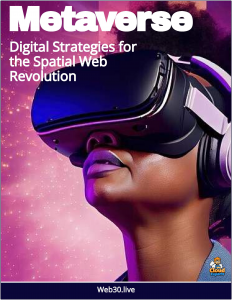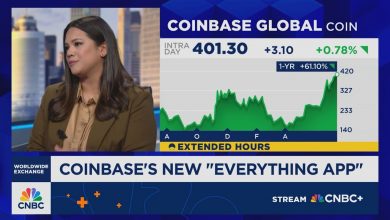The Future Mark Zuckerberg Is Trying To Build
As the Metaverse continues to evolve, it will be fascinating to see how Zuckerberg's vision unfolds and shapes the future of this immersive digital world.
 Mark Zuckerberg’s vision and ambition for the metaverse, as articulated through his leadership at Meta, have evolved since the initial hype peaked around 2021-2022, when Facebook rebranded to Meta.
Mark Zuckerberg’s vision and ambition for the metaverse, as articulated through his leadership at Meta, have evolved since the initial hype peaked around 2021-2022, when Facebook rebranded to Meta.
Despite the diminished buzz in recent years—evidenced by skepticism, financial losses, and a broader tech shift toward AI—Zuckerberg remains steadfast in his long-term commitment to the metaverse as a transformative platform.
Core Vision: The Next Internet Frontier
Zuckerberg envisions the metaverse as the “successor to the mobile internet,” a paradigm shift in how humans interact with technology.
He sees it as an immersive, interconnected digital universe where people can work, socialize, play, and create using virtual reality (VR), augmented reality (AR), and other spatial computing tools. Initially pitched in 2021 as a space where “you’ll be able to do almost anything you can imagine,” his ambition is to transcend static 2D screens, fostering a sense of presence—like being “right there with another person or in another place.”
This vision draws heavily from sci-fi roots (e.g., Neal Stephenson’s Snow Crash), aiming to merge physical and virtual realities into a seamless, shared experience.
Ambition: A Billion Users and Economic Engine
Zuckerberg’s ambition is grand: he wants the metaverse to reach a billion people within a decade (from his 2021 timeline, so by roughly 2031), hosting “hundreds of billions of dollars of digital commerce” and supporting “millions of creators and developers.”
He sees it as a platform not just for entertainment but for redefining work (e.g., Horizon Workrooms for virtual meetings), education, and commerce (e.g., virtual storefronts). This ecosystem would leverage Meta’s hardware—like the Quest VR headsets and the recently unveiled Orion AR glasses—and software, creating a self-sustaining digital economy where Meta could dominate as a foundational player, much like it did with social media.
Evolution Amid Diminished Hype
The hype crash—marked by Horizon Worlds’ lackluster reception (buggy, low user numbers, mocked graphics), Reality Labs’ staggering $40+ billion in losses since 2021, and a pivot in public attention to AI—hasn’t deterred Zuckerberg’s core ambition, though it’s forced tactical shifts. In 2023, he pushed back against narratives of abandonment, insisting Meta remains focused on both AI and the metaverse, calling them complementary.
He’s reframed the timeline as a “long-term project,” acknowledging in 2023’s Meta Connect that “we haven’t seen the real metaverse yet.” This suggests a pragmatic recalibration: less flashy promises, more incremental progress.
Recent moves show this adjustment. The Quest 3 headset and Orion AR glasses (unveiled in 2024) signal a focus on refining hardware to make the metaverse more accessible and practical—moving beyond clunky VR to lightweight AR that blends digital and physical worlds. Meanwhile, Meta’s AI investments (e.g., Llama models) are being woven into the metaverse, enhancing avatars, interactions, and content creation, aiming to make experiences more engaging and scalable.
Current Stance: Resilience and Reinvention
Despite the financial bleeding—Reality Labs lost $3.99 billion in Q1 2023 alone, with bigger losses projected—Zuckerberg’s personal stake as Meta’s founder and controlling shareholder keeps the vision alive.
He’s doubled down on a hybrid strategy: using AI to bolster the metaverse while leaning on Meta’s profitable social media core (Facebook, Instagram) to fund it. In a 2024 interview with Tiffany Janzen, he emphasized wanting Meta to be remembered for “building platforms for human connection,” not just apps—a nod to the metaverse as his legacy play, even if it’s not yet mainstream.
Critics argue it’s a vanity project, pointing to Horizon Worlds’ 300,000 monthly users (tiny vs. billions on Instagram) and a market favoring AI over VR. Yet Zuckerberg counters this with a historical analogy: just as the internet’s early days were messy, the metaverse needs time to mature. He’s betting on a future where spatial computing becomes intuitive—think gesturing or thinking to interact, not just strapping on a headset.
Implications of Diminished Hype
The hype’s decline has stripped away some of the utopian sheen, exposing practical hurdles: hardware limitations, user fatigue, and unclear value propositions (why meet in VR when Zoom works?). But it’s also clarified Zuckerberg’s resolve. He’s less about chasing trends now and more about laying infrastructure—think of it as building the railroads before the towns.
The metaverse, in his view, isn’t dead; it’s just in a “trough of disillusionment” (as VP Vishal Shah put it in 2023), a phase where Meta can “put their heads down and build.”
In summary, Zuckerberg’s vision remains a bold reimagining of digital life—an open, immersive platform for connection and creation—while his ambition adapts to a post-hype reality: slower, AI-infused, and hardware-focused, but still aiming to redefine how we live online. Whether it’s a genius long game or a billionaire’s folly, he’s not quitting yet.



